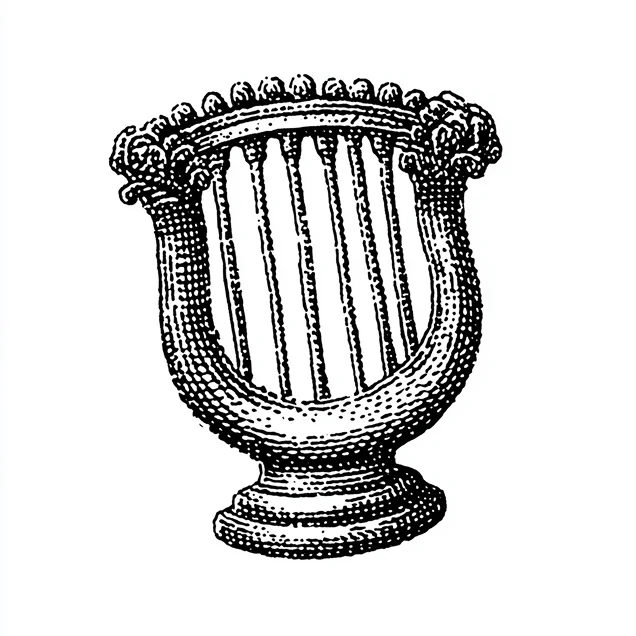The retirement account that's not working hard enough
Your 401(k) is one of the most powerful wealth-building tools you have. It's tax-advantaged, often matched by your employer, and automatically funded from your paycheck. But here's the problem: most people are way too conservative with their 401(k) allocation.
We regularly see 35-year-olds with 30% of their 401(k) in bonds, or 45-year-olds sitting in cash because they're "waiting for a better entry point." This is money you won't touch for 20-30 years, yet it's invested like you might need it next month.
If your 401(k) isn't aggressively pursuing growth, you could be leaving serious money on the table during your peak earning and saving years.
Why most 401(k) allocations are wrong
Problem #1: Overly conservative target date funds Many target date funds start reducing stock exposure too early. A 40-year-old might find themselves in a fund that's already shifting toward bonds, even though they have 25 years until retirement.
Problem #2: Set-and-forget mentality People choose an allocation when they start a job and never revisit it. That conservative 60/40 mix you picked at 25? It could be costing you hundreds of thousands in growth potential.
Problem #3: Fear of volatility 401(k) dollars have decades to recover from market downturns. Being afraid of short-term volatility with long-term money is like refusing to drive because you might hit a red light.
Problem #4: Cash sitting idle Some people have cash or stable value funds in their 401(k) earning 2-3% while inflation eats away at their purchasing power over decades.
The right way to think about 401(k) allocation
Your 401(k) is long-term money. Unless you're within 10 years of retirement, you have time to ride out market cycles and benefit from long-term equity growth.
Time horizon matters more than age. A 45-year-old planning to work until 65 has a 20-year investment timeline. That's still long-term money that can handle equity volatility.
Equities have historically been the best long-term asset class. Over any 20-year period, stocks have dramatically outperformed bonds and cash.
The biggest risk isn't volatility—it's not having enough money in retirement. Playing it too safe with your 401(k) can leave you short of your retirement goals.
Common 401(k) allocation mistakes
Treating your 401(k) like a savings account Cash and stable value funds have no place in a long-term retirement account unless you're within a few years of retirement.
Over-diversifying with tiny positions Don't spread your contributions across 12 different funds with 8% each. Keep it simple with 2-4 low-cost broad market funds.
Ignoring expense ratios Many 401(k) plans are loaded with expensive mutual funds charging 1%+ annually. Look for index fund alternatives with expense ratios under 0.5%.
Not maximizing employer match This is free money. If your employer matches 6% and you're only contributing 3%, you're leaving money on the table.
Overweighting company stock You generally should not put more than 5-10% of your 401(k) in your employer's stock. Your job and retirement shouldn't both depend on the same company.
Never rebalancing Set a calendar reminder to review and rebalance annually to maintain your target allocation.
What to look for in your 401(k) plan
Low-cost index funds Look for funds with expense ratios under 0.2%. Popular options include total stock market index funds, S&P 500 funds, and international index funds.
Target date funds (if done right) Some target date funds are excellent—low fees and appropriate allocations. Others are expensive and too conservative. Check the expense ratio and equity allocation.
Roth 401(k) option Many plans now offer Roth contributions. Unlike Roth IRAs, Roth 401(k)s have no income limits, making them valuable for high earners.
Reasonable fund menu Your plan should offer at least a few low-cost index fund options covering domestic stocks, international stocks, and bonds.
How to optimize your current 401(k)
Step 1: Audit your current allocation Log into your 401(k) account and see where your money is currently invested. What percentage is in stocks vs. bonds vs. cash?
Step 2: Review your fund expenses Look up the expense ratios of your current investments. Anything over 1% deserves scrutiny.
Step 3: Identify better options Look for low-cost index funds in your plan menu. You typically need just 2-3 funds to build a solid portfolio.
Step 4: Rebalance toward growth If you're more than 10 years from retirement and sitting in conservative investments, gradually shift toward a more aggressive allocation.
Step 5: Maximize contributions Try to contribute at least enough to get your full employer match, and work toward the annual maximum if possible.
Quick Answers: 401(k) allocation questions
"Should I use my plan's target date fund?" Maybe. Check the expense ratio (should be under 0.5%) and make sure the equity allocation matches your risk tolerance and timeline.
"Can I be too aggressive with my 401(k)?" If you're decades from retirement, probably not. The bigger risk is being too conservative and not having enough money when you retire.
"How often should I rebalance?" Annually is usually enough. More frequent rebalancing can lead to unnecessary trading and complexity.
"What if my 401(k) plan has terrible investment options?" Contribute enough to get your employer match, then focus additional retirement savings in an IRA where you have more investment choices.
Can Titan help optimize your 401(k)?
Yes. If you're a Titan client, we can:
- Review your current 401(k) allocation and identify optimization opportunities
- Recommend the best available options within your plan's menu
- Coordinate your 401(k) with your overall investment strategy across all accounts
- Help you determine optimal contribution strategies including Roth vs. traditional decisions
Your 401(k) is likely your most important retirement account—it deserves a growth-oriented strategy that matches its long-term purpose.
Want help maximizing your 401(k) potential?
Talk to a Titan advisor to get a personalized 401(k) optimization strategy that puts your retirement savings to work.
About Titan
Titan is a modern Registered Investment Advisor (RIA) helping high-earning professionals navigate complex money decisions. With a dedicated advisor and access to proprietary strategies and alternative investment options, we're your go-to wealth team for everything from RSUs to retirement. Learn more at www.titan.com.







